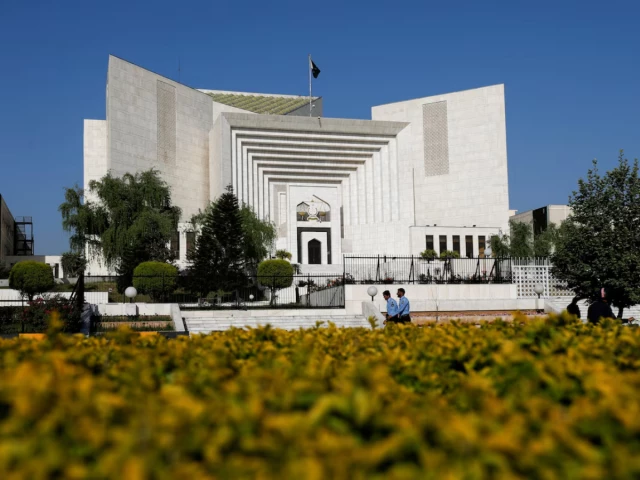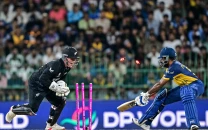SC split over 27th amendment
Judges could neither agree to tender collective resignations nor endorse tweak

After the passage of the amendment, Chief Justice of Pakistan Yahya Afridi on November 15 summoned a full court meeting. However, Supreme Court judges could not agree to give a comment on the 27th Constitutional Amendment.
Perhaps it was the first time that the full court meeting was held in the CJP's chamber wherein more than a dozen judges were present.
It is learnt that two proposals were given to the SC judges during the meeting.
The first was about collective resignation. The second was about the endorsement of the proposed statement regarding the 27th amendment.
The proposed statement indicated that the 27th Constitutional Amendment has been passed by parliament, which is binding, and that the Federal Constitutional Court (FCC) has been established, and any challenge to the 27th amendment will go to the FCC.
However, consensus could not be evolved on the proposed statement. One section of judges was of the view that the proposed statement would be an endorsement of the 27th Constitutional Amendment.
In order to avoid dissenting opinions, the statement on the amendment could not be issued. Sources also confirmed that the idea of collective resignation was given to the judges during the meeting.
It is also learnt that CJP Afridi did not read Justice Salahuddin Panhwar's letter regarding holding a full court meeting on the 27th Constitutional Amendment, and the sealed envelope of the letter was returned to Justice Panhwar during the meeting.
CJP Afridi also rejected the rumours that he had talked with the government for the revival of his title "Chief Justice of Pakistan" through a person-specific constitutional amendment.
However, when the draft of the 27th Constitutional Amendment was tabled in the Senate, Justice Afridi became aware that the words "Chief Justice of Pakistan" were being removed.
Upon this, he made up his mind to tender his resignation as the CJP. Subsequently, the government retained his title in the amendment.
Lawyers are questioning that when the government functionaries had informed him about the proposed 27th Amendment, then the CJP should have immediately summoned a full court meeting to discuss the institutional response.
Even Justice Afridi did not call a meeting on the letters written by Justice Syed Mansoor Ali Shah, Justice Athar Minallah, and Justice Salahuddin Panhwar.
Legal opinion is divided regarding the filing of a petition against the 27th amendment by four Islamabad High Court judges. The SC Registrar Office has refused to entertain their petition.
A lawyer, however, stated that throughout the world in constitutional jurisprudence it has been laid down that it is an inherent jurisdiction of that court to check the vires of any ouster clause which ousts the jurisdiction of the said court.
Former additional attorney general Tariq Mahmood Khokhar said the "27th Constitutional Amendment" is an absurd nullity.
Khokhar stated that it purports to erode constitutional and democratic fundamentals, violating the basic structure of the Constitution, including the principles of separation of powers, judicial independence, and the rule of law. It empowers the FCC at the expense of the SC.
"It was enacted by an unelected parliament, lacking constitutional and democratic legitimacy. An act of parliament is accepted by the courts at its own face value, without needing support from any superior authority.
"But an act passed by an unrepresentative parliament has no face value of its own; it is not an act of parliament. As such, it suffers from procedural and substantive invalidity," he said.
He stated that there is no break in legal continuity. The SC judges have not shifted their judicial loyalty. They are bound by their oath. The SC has not issued any institutional response to the 27th amendment.
"It is for the SC to adjudge what they will recognise as valid legislation," Khokhar said, adding that the SC, sitting as a full court, is an appropriate forum to adjudicate the constitutionality of the 27th amendment.
Conversely, the FCC is the creation of the 27th amendment, its members handpicked by the executive. To many observers, it reeks of executive capture. "As such, it ought not to be a judge in its own cause," Khokhar said.




















COMMENTS (2)
Comments are moderated and generally will be posted if they are on-topic and not abusive.
For more information, please see our Comments FAQ